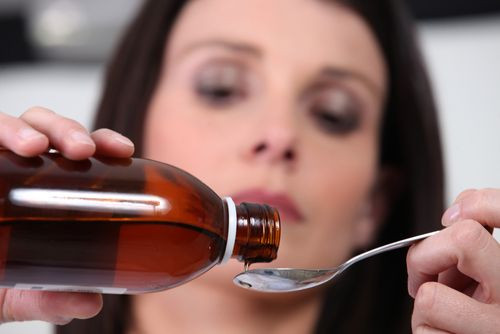The High Life: 6 Most Addictive Legal Drugs That Are Hard To Kick

The “war on drugs” isn’t just a battle against the illegal drug trade overseas, it’s a war that weeds from America’s backyard, and sprouts into the medicine cabinets of American homes, and businesses. The most addictive drugs aren’t always the illegal ones on the black-market, they can be found over-the-counter (OTC) at the drug store, the gas station, and even at the doctor’s office. The dosages and combinations of these drugs are tampered with to make them as potent as possible to achieve the desired “high,” but because these drugs are so addictive, they are commonly abused, and hard to kick.
Dr. Gayle Randall, addiction and integrative medicine physician at The Power of Choice in Malibu, Calif., believes opiates, cocaine, alcohol, and even sugar are among the most addictive drugs. “They all activate and light up the addiction center in the brain called the nucleus accumbens like a light bulb,” Randall told Medical Daily in an email. While it’s known some of the world's illegal drugs, like heroin, can be the most addictive, these surprisingly legal drugs can get you hooked, and deteriorate your health as a consequence.
1. Alcohol
Whether you’re at a birthday party, family dinner, or networking event, alcohol is usually present, and within your reach in your home. Alcohol tends to calm anxiety and creates a situation where the consumer is less anxious, but stimulated, depending on the dose. While it seems you can easily “blame it on the alcohol,” after a night of drinking filled with pain, regret, and negative experiences, it can evolve into repeated use, which leads to depletion, and the needing more of the substance to achieve a “high” effect.
“[It] releases high levels of neurotransmitters (NT) which result in the sensation of being high,” said Randall. As a psychoactive substance, it raise serotonin and gamma-aminobutyric acid (GABA) which calms you, while dopamine stimulates you. When the pleasure center in the hypothalamus (nucleus accumbens) is activated, according to Randall, it wants more.
2. Ambien
Sleepless nights may make you desperate for a pill fix for the most troubling sleep woes for a good night’s rest, but it can easily become addictive. Ambien is a potent GABA receptor agonist, meaning they create calming and sedative sensation, which causes them to induce sleep. This pill can make you hungry, and give you amnesia.
Randall believes the danger lies in people using it to calm their anxiety, and therefore, begin use during the day. “This is extremely dangerous as there is frequently a sleep-walking or black out state where patients end up doing things such as cooking, driving and have no recollection or memory of doing it,” Randall said. A high-dose Ambien requires detoxification and is considered to be as dangerous as benzodiazepine dependence where withdrawal can possibly lead to seizure, and even death.
3. Caffeine
Your morning cup of caffeine may give you a burst of energy, and increase your alertness at your time of need, but it is also the world’s most popular psychoactive drug. Within 24 hours of quitting caffeine, the withdrawal symptoms, such as mental fogginess, lack of alertness, muscle fatigue, and irritability can begin to kick in, Smithsonian Magazine reported. Although four cups of coffee, or 400-milligrams of caffeine is safe for the average healthy adult, caffeine in excess (more than 500-milligrams per day) can result in insomnia, accelerated heart rate, and anxiety.
4. Cough Syrup
If you’ve ever had bronchitis, sinusitis, or hay fever, your doctor may have prescribed cough syrup. Typically, prescription cough syrup contains codeine, which is an opiate and addictive in the same way as other opiates. Taking over the recommended doses can cause you to become dependent on the drug.
Cough syrup suppressants sold OTC contain dextromethorphan, which can be extremely addictive in high dosages, according to Randall. “It acts like an opiate but also has some psychedelic properties,” she said. “People addicted to this are often extremely resistant to getting off of it.”
5. Opiates
OxyContin, Percocet, and Vicodin are highly addictive, and dangerous prescription pain killers that are only intended to treat short-term pain. The drugs are said to have an “euphoric effect” that makes them so addictive. The body quickly gets used to opioid painkillers, and begins to crave higher doses to get the same desired effect.
Randall has heard patients describe the euphoric effect "like kissing the face of God.” Repeated, and increasing dosing results in profound neurotransmitter depletion, and therefore, creates the need for higher and higher amounts of the substance to achieve the high. However, there is a burnout period, according to Randall, which is when patients must use high doses of opiate frequently to just stay out of withdrawal,” without euphoria or high results.
6. Nicotine
One of the most accessible addictive legal drugs is found readily everywhere across the nation for sale. Nicotine in a cigarettes, cigars, or tobacco, can cause most people who smoke occasionally to get addicted, and make it harder to quit. Smoking is addictive because it also raises dopamine at the same time as stimulating the "valium receptor,” said Randall, which activates mental activity while calming the person.
Remember to follow the recommended dose when using legal drugs to avoid its harmful effects that can lead to substance abuse, and eventually rehabilitation.



























